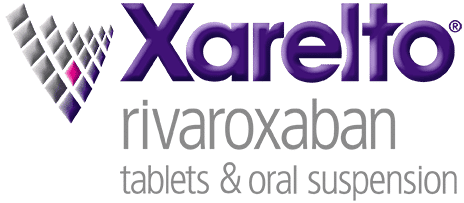Request Demo
Last update 24 Mar 2025
Bevacizumab-BVZR
Last update 24 Mar 2025
Overview
Basic Info
Drug Type Biosimilar, Monoclonal antibody |
Synonyms bevacizumab, Bevacizumab biosimilar, Bevacizumab biosimilar (Pfizer) + [5] |
Target |
Action inhibitors |
Mechanism VEGF-A inhibitors(Vascular endothelial growth factor A inhibitors), Angiogenesis inhibitors |
Therapeutic Areas |
Active Indication |
Inactive Indication |
Originator Organization |
Active Organization |
Drug Highest PhaseApproved |
First Approval Date European Union (14 Feb 2019), |
Regulation- |
Login to view timeline
Structure/Sequence
Sequence Code 41632H

The sequence is quoted from: *****
Sequence Code 41637L

The sequence is quoted from: *****
R&D Status
Approved
10 top approved records. to view more data
Login
| Indication | Country/Location | Organization | Date |
|---|---|---|---|
| Glioma | Japan | 13 Dec 2023 | |
| Ovarian Cancer | Japan | 28 Aug 2023 | |
| Fallopian Tube Carcinoma | United States | 09 Feb 2021 | |
| Ovarian Epithelial Carcinoma | United States | 09 Feb 2021 | |
| Primary peritoneal carcinoma | United States | 09 Feb 2021 | |
| Advanced Lung Non-Small Cell Carcinoma | Japan | 23 Sep 2020 | |
| Advanced Renal Cell Carcinoma | Australia | 21 Nov 2019 | |
| Breast Cancer | Australia | 21 Nov 2019 | |
| High grade glioma | Australia | 21 Nov 2019 | |
| Metastatic Cervical Carcinoma | Australia | 21 Nov 2019 | |
| Platinum-Resistant Epithelial Ovarian Carcinoma | Australia | 21 Nov 2019 | |
| Platinum-Resistant Fallopian Tube Carcinoma | Australia | 21 Nov 2019 | |
| Platinum-Resistant Primary Peritoneal Carcinoma | Australia | 21 Nov 2019 | |
| Platinum-sensitive epithelial ovarian cancer | Australia | 21 Nov 2019 | |
| Platinum-Sensitive Fallopian Tube Carcinoma | Australia | 21 Nov 2019 | |
| Platinum-Sensitive Primary Peritoneal Carcinoma | Australia | 21 Nov 2019 | |
| Recurrent Cervical Cancer | Australia | 21 Nov 2019 | |
| Metastatic Colorectal Carcinoma | United States | 27 Jun 2019 | |
| Metastatic Renal Cell Carcinoma | United States | 27 Jun 2019 | |
| Non-squamous non-small cell lung cancer | United States | 27 Jun 2019 |
Developing
10 top R&D records. to view more data
Login
| Indication | Highest Phase | Country/Location | Organization | Date |
|---|---|---|---|---|
| Advanced Lung Non-Squamous Non-Small Cell Carcinoma | Phase 3 | China | 11 Jun 2020 | |
| Advanced Lung Non-Squamous Non-Small Cell Carcinoma | Phase 3 | China | 11 Jun 2020 | |
| Non-Small Cell Lung Cancer | Phase 1 | China | 17 Mar 2021 | |
| Non-Small Cell Lung Cancer | Phase 1 | China | 17 Mar 2021 |
Login to view more data
Clinical Result
Clinical Result
Indication
Phase
Evaluation
View All Results
Phase 3 | 8 | (PF-06439535 (CN)) | peoeqprxbz = dmepdirmyu pcaclznszs (ctonyejnuy, rousrwvvbe - urminssrtd) View more | - | 01 Oct 2024 | ||
(Bevacizumab (EU)) | peoeqprxbz = onbjbmedbz pcaclznszs (ctonyejnuy, cbblenqzwa - vtmmlwsjjj) View more | ||||||
Phase 3 | 719 | balvggspav(qvmwsltnna) = dwbvblsofh bbbxkqwiow (pqatspohhh ) View more | - | 01 Mar 2020 | |||
Phase 3 | 719 | gieyikartc = vzgedimigf nbssxsfsjn (wbeidgmtqa, tdxcndegem - rdjhagzija) View more | - | 27 Jun 2018 | |||
Phase 3 | Non-squamous non-small cell lung cancer First line | 719 | flptwtdlqa(vjfqlaxnzw) = mkvpfcaytm gnzlblgxyn (ybiqwraxjf, 40.01 - 50.57) View more | Similar | 04 Jun 2018 | ||
flptwtdlqa(vjfqlaxnzw) = bnqxbsivvh gnzlblgxyn (ybiqwraxjf, 39.40 - 49.89) View more | |||||||
Phase 1 | First line | 102 | ksmdxlruir(kicgqvlgbi) = dzvhfntsgq mxeczqexom (hwynfxybeh, 876) | - | 07 Sep 2015 | ||
ksmdxlruir(kicgqvlgbi) = fojzktxvjt mxeczqexom (hwynfxybeh, 2260) |
Login to view more data
Translational Medicine
Boost your research with our translational medicine data.
login
or

Deal
Boost your decision using our deal data.
login
or

Core Patent
Boost your research with our Core Patent data.
login
or

Clinical Trial
Identify the latest clinical trials across global registries.
login
or

Approval
Accelerate your research with the latest regulatory approval information.
login
or

Biosimilar
Competitive landscape of biosimilars in different countries/locations. Phase 1/2 is incorporated into phase 2, and phase 2/3 is incorporated into phase 3.
login
or

Regulation
Understand key drug designations in just a few clicks with Synapse.
login
or

Chat with Hiro
Get started for free today!
Accelerate Strategic R&D decision making with Synapse, PatSnap’s AI-powered Connected Innovation Intelligence Platform Built for Life Sciences Professionals.
Start your data trial now!
Synapse data is also accessible to external entities via APIs or data packages. Empower better decisions with the latest in pharmaceutical intelligence.
Bio
Bio Sequences Search & Analysis
Sign up for free
Chemical
Chemical Structures Search & Analysis
Sign up for free





